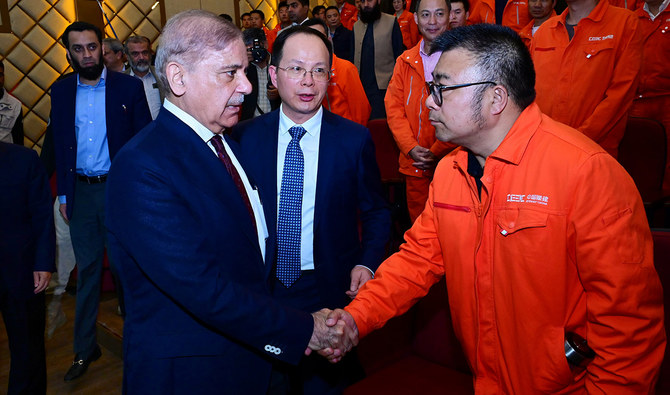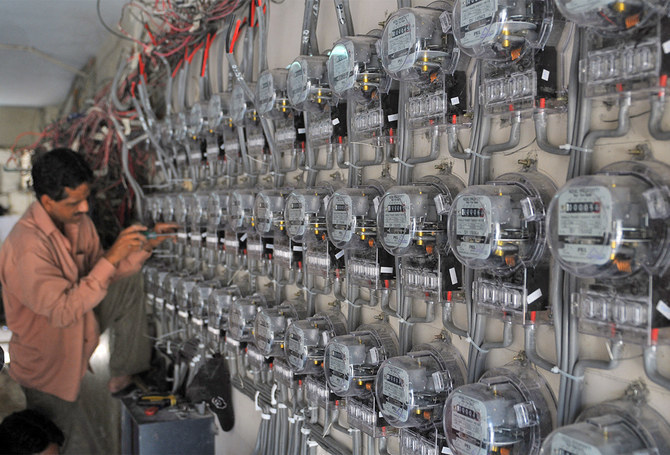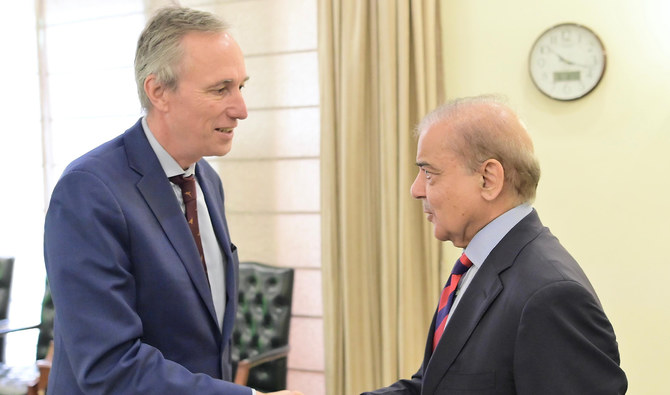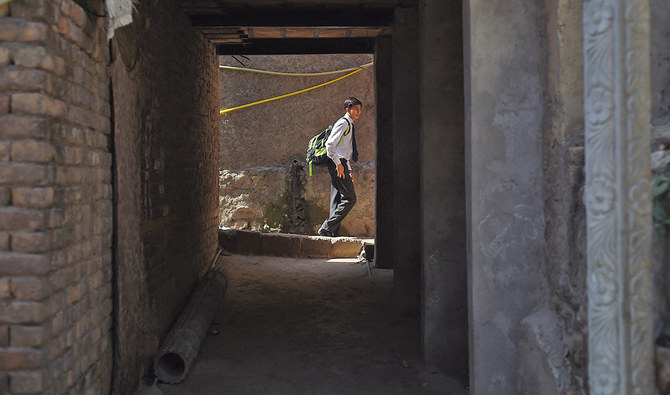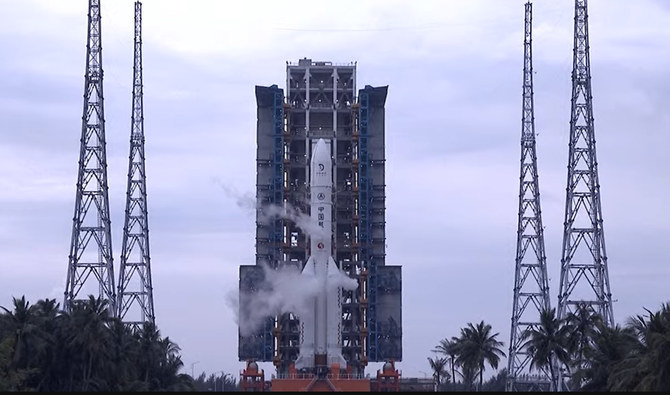ISLAMABAD: Prime Minister Shehbaz Sharif on Monday met with Chinese engineers working on a dam project in Dasu in northwest Pakistan and promised to provide “fool-proof” security to them, days after a deadly bombing targeted Chinese nationals in the Shangla district.
Five Chinese nationals and their Pakistani driver were killed on March 26 in Shangla, located in the northwestern Khyber Pakhtunkhwa province, when a bomber rammed his explosive-laden car into their vehicle.
The attack occurred in an area vital to the China-Pakistan Economic Corridor (CPEC), which encompasses various mega projects crucial for Pakistan’s economy. The victims were en route to Dasu Dam, Pakistan’s largest hydropower project, when they were targeted.
Speaking to Chinese engineers, PM Sharif offered his condolences over the death of the Chinese nationals and said the cowardly attack was an attempt by the disturb exceptional friendship between China and Pakistan.
“My dear Chinese brothers and sisters, I can see deep sense of sorrow and sadness on your faces as five of your very beloved colleagues left this world and rightly so you are full of sorrow and we share this moment of sorrow,” he said in televised comments.
“I want to assure you that the Government of Pakistan will not leave any stone unturned, will not leave any effort, will not spare any opportunity to ensure you get the best possible security for your families and yourself and that nothing will be left to chance in future.”
The prime minister noted that a joint investigation team was investigating the attack and was due to present its report soon. He once again assured the Chinese engineers, ambassador and the Chinese government that his country would bring to justice the perpetrators of the March 26 attack.
Sharif’s comments came hours Pakistani counterterrorism police conducted multiple raids and arrested at least 12 suspects in connection with last week’s suicide bombing, officials said.
The detainees were not directly involved in the attack but they helped those who orchestrated the bombing, AP news agency reported, citing three police and security officials. They said some of the detainees had links with Pakistani militants, adding that the suspects were still being questioned and other raids were ongoing.
The officials said some of the detained suspects transported an explosive-laden car to Shangla in the Khyber Pakhtunkhwa province, where the suicide bomber rammed it into the vehicle carrying the Chinese workers.
Sharif’s office earlier said the prime minister had issued comprehensive instructions to enhance the security of Chinese nationals working in Pakistan after last week’s attack.
No group had claimed responsibility for the attack but suspicion was likely to fall on separatists and the breakaway Gul Bahadur faction of the Pakistani Taliban, known as Tehreek-e-Taliban Pakistan or TTP, and is a separate group, but a close ally of the Afghan Taliban.
The TTP denied being behind the suicide bombing in a statement Wednesday, saying: “We are in no way related to the attack on the Chinese engineers.”
The attack came less than a week after Pakistani security forces killed eight Balochistan Liberation Army separatists who opened fire on a convoy carrying Chinese citizens outside the Chinese-funded Gwadar port in the volatile southwestern Balochistan province.
Separately, Pakistan’s senior civil and military leadership on Sunday paid their respects to the slain Chinese nationals during a wreath-laying ceremony at the Nur Khan Airbase in Pakistan’s eastern city of Rawalpindi.
On behalf of Pakistan’s president, prime minister, army chief, chairman joint chiefs of staff committee and air chief, floral wreaths were placed at the air base while a 30-second silence was also observed for the victims.
“The Government of Pakistan strongly condemns this heinous act of terrorism and will take all necessary steps to bring the terrorists and their facilitators to justice,” the Pakistani military said in a statement.



